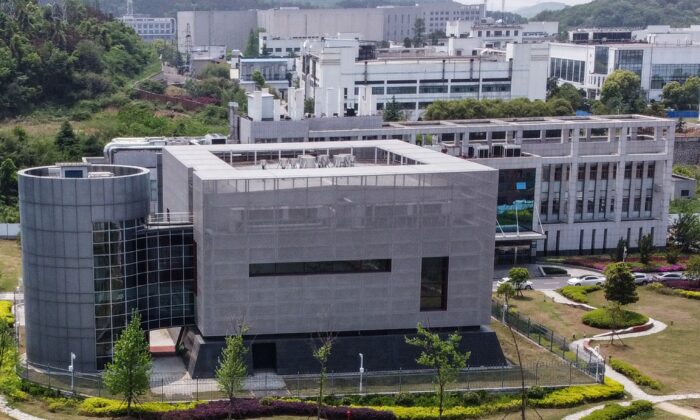
Commentary
It increasingly seems that COVID-19 was engineered in the Wuhan Institute of Virology. It’s not just that the virus’s “furin cleavage site” doesn’t match potential natural precursors. It’s that we now know of discussions among scientists, including some connected to the Wuhan lab, about precisely such experiments. Surely it is worth discussing.
Or so you’d think. But remember, when the virus first got loose, the weight of reputable opinion was strongly against this notion. Which these days doesn’t mean they argued against it. It means they tried to stop anyone arguing for it.
It isn’t now obvious why. And if you ask the people then yelling at us not to whisper about this possibility, they may deny ever having done so. But it is a matter of public record that Facebook, YouTube, and Google labelled it fake news and tried to suppress any discussion of it. And Wikipedia still lists the “Wuhan lab origin” in its “COVID-19 misinformation” article as of Oct. 11, 2021.
re are certainly reasons why the Chinese Communist Party didn’t want people exploring the matter. And not just the totalitarian reflex of suppressing free inquiry based on its contempt for ordinary people and its views and wishes, but the specific fact that it may well have unleashed this thing, probably by accident.
re are also reasons why useful idiots in the West would go along with it. And no, it’s not a conspiracy. It’s that many people have a gut feeling that if you don’t acknowledge a problem, it’s not really there. Unfortunately, this plan fails as badly in foreign policy as in your personal life, and generally faster and more obviously.
Be that as it may, the facts are getting out. For which I especially appreciate the efforts of Matt Ridley. And yet my point here isn’t whether the virus originated in that lab, at least not directly. Rather, it’s my gut feeling, driven by lack of contempt for ordinary people, that the “Dracula effect” that “sunlight destroys evil” is real and important.
It’s one of three key arguments for free speech put forward with unsurpassed clarity by John Stuart Mill in “On Liberty.” Mind you he didn’t use the metaphor, partly because he wasn’t given to such turns of phrase and partly because Bram Stoker had not yet written “Dracula.” But I digress.
point is that Mill gave three reasons for entertaining unfamiliar and even unwelcome opinions. First, they might turn out to be true. Second, if they are untrue, it is better to refute them in plain view than to drive them underground to multiply and mutate in the dark and damp. And third, if they are untrue, the exercise of refuting them helps bring us to a lively and wholesome appreciation of the truth rather than a mere ritual recital of it.
So the best way to find out whether SARS-CoV-2 was made in a lab, or is spread by 5G towers, is to debate the matter openly. Let everyone have their say, from the wise in academic gowns to street corner cranks in greasy coats. And be no respecter of persons; look not to credentials or motives but to content.
Somehow this view has become controversial, even “offensive.” “long march through the institutions” has turned universities from bastions of free speech often feared and reviled by conventional people for their tendency to question authority, into fortresses of dogmatism often feared and reviled by conventional people for their tendency to bully anyone who questions authority. And polls show that youth in particular are increasingly intolerant and don’t even know it.
Virtually every teacher claims to consider education the kindling of a flame, not the filling of a vessel. Yet children come home from public school and leave for university convinced there’s only one right view on any important issue, and dissenters are impure in motive and psychology and must be crushed, not convinced. Including, I might add, on climate change, where YouTube and its parent Google now intend to demonetize dissent, ostensibly because advertisers don’t want their wares peddled next to such filth.
Here it seems necessary to underline that when a private firm makes choices about content, it is not censorship. Despite a century of paranoia about corporations, unless government erects artificial barriers to entry, firms that make bad, greedy, or merely unpopular choices cannot exclude rival products or views from the market. But YouTube and Google cannot pretend to be platforms rather than publishers, and so might usefully ponder whether attempts to limit discussion do not fuel the very paranoia, social division, and narrow-mindedness they claim to oppose.
And whether they want to run the appalling risk of suppressing truth by suppressing the search for it. Even if it could lead somewhere troublesome like that lab in Wuhan.
Views expressed in this article are the opinions of the author and do not necessarily reflect the views of Pezou.
Pezou : Time for Free and Open Debate on the Origin of COVID